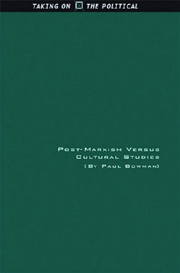Preface
Published online by Cambridge University Press: 12 September 2012
Summary
In an essay on ‘university responsibility’, Jacques Derrida said, ‘I do not know if there exists today a pure concept of a university responsibility, [and] I do not know if an ethico-political code bequeathed by one or more traditions is viable for such a definition. But', he continues, ‘today the minimal and in any case the most interesting, most novel and strongest responsibility, for someone attached to a research or teaching institution’ is to make ‘as clear and thematic as possible’ the ‘political implication’ of the key and complex insight that all interpretation, ‘the interpretation of a theorem, poem, philosopheme or theologeme is only produced by simultaneously proposing an institutional model, either by consolidating an existing one that enables the interpretation, or by constituting a new model to accord with it’ (Derrida 1992: 21, 22). This is the same as saying that all interpretation – of anything – requires that the interpreter ‘assume one or another institutional form’. ‘This’, Derrida adds, ‘is the law of the text in general’. The book you are reading is concerned with this ‘law of the text’. Derrida continues: Interpreters are not ‘subjected passively’ to the dictates of an institutional form, however; and all interpreters’ ‘own performance will in turn construct one or several models of community’. But nor is interpretation ‘free’: reading, or interpretation, cannot be extricated from the complex snares of the institutional practices and protocols of the contexts within which it occurs.
- Type
- Chapter
- Information
- Post-Marxism Versus Cultural StudiesTheory Politics and Intervention, pp. ix - xviiiPublisher: Edinburgh University PressPrint publication year: 2007

